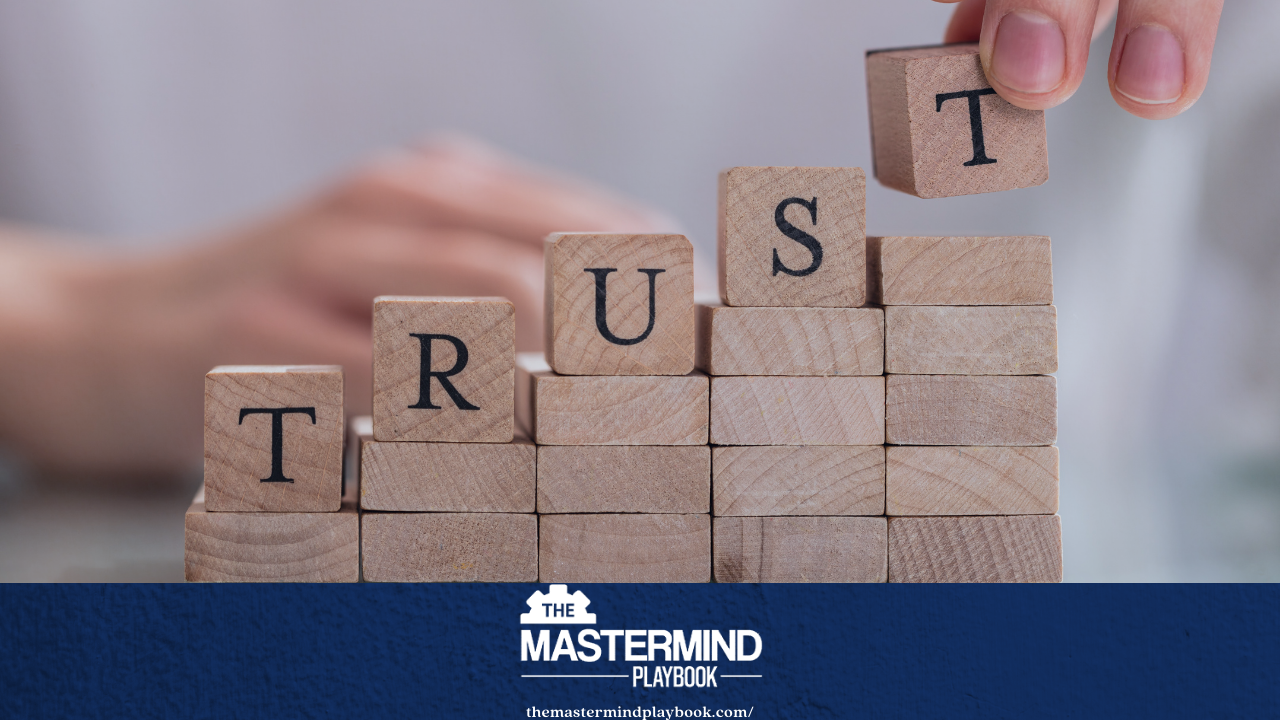The Secret to Being the BEST Mastermind Leader: How to Improve Your Communication with the Art of Clear Expectations

Communication forms the backbone of every business and relationship. Without communication, there is no means of trust, expectation, or execution. Communication is mandatory for any successful business or partnership to continue. Unfortunately, most Mastermind leaders talk... but they don’t communicate what they actually mean.
In the book The Speed of Trust, Stephen M. R. Covey shares a story about a miscommunication between his wife and his daughter. Stephen's wife, Jeri, told their 16 year old daughter that she wasn’t allowed to go out with her friends that night unless she cleaned her room and her bathroom.
Later, after their daughter had left for a dance, Jeri checked her room and bathroom and exclaimed, “McKinlee is grounded! She broke a commitment!” upon realizing the rooms weren’t clean. Stephen then proceeded to call McKinlee to tell her she had to come home and clean her room and the bathroom.
McKinlee insisted that she did clean the rooms, to which Stephen re...
The Secrets to Building Trust in a Mastermind Group

Many different components go into running a successful mastermind group, but trust has to rank as the highest on the list. Trust forms the basis of authentic communication and relationship building. Without it, we have nothing.
As a mastermind leader, the onus falls on you to build trust with and between your members. However, we have many myths about trust running rampant in our culture.
Perhaps the most misguided myth is that trust takes a long time to earn. While this certainly can be true in some cases, it isn’t true if you have the tools and mindsets at your disposal to inspire trust in others. I’ll detail some of these tools as well as some general principles that will help take your mastermind group to the next level.
The first step in building trust with others is to establish self-trust. Trusting yourself means having the integrity to “walk your talk” and stand behind your principles. To develop self-trust, you must be honest, meaning that you always tell the t...
Why You Should Cultivate Trust Among Your Mastermind Members

Trust forms the foundation for meaningful interpersonal relationships and organizational cohesion. Individuals who trust each other form bonds, cooperate, and work harmoniously towards a common objective. Conversely, a lack of trust between individuals causes power struggles, selfishness, and bitterness. As a result, individuals who don’t trust each other are less productive, less moral, and less motivated. This is not the outcome any of us want for our relationships!
This same dynamic also applies to groups. In fact, the effects of distrust become amplified when it comes to collectives and organizations. That is because a lack of trust amongst individuals in a group can lead to a culture of distrust which fosters infighting, ego gratification, and aggression. Thus an unhealthy environment breeds greater toxicity. This isn’t always the case, but it’s definitely the norm.
In this sense, you can consider the culture of a group or organization as an economy of trust, in which g...

